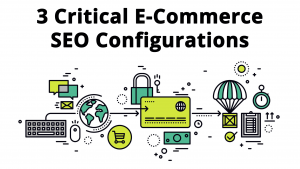Personalization Squared: Consumers Want Both Benefits And Data Security
Consumers and brands are of two different minds when it comes to personalization.
While 75% of business leaders say personalization is “table stakes” for digital , only 52% of consumers say their satisfaction improves as brands become more personalized, according to the State Of Personalization, a study by Twilio Segment.
And whereas 85% of brands believe they are providing personalized experiences, only 60% of consumers feel they are getting them.
That’s too bad, as 60% of those same shoppers are likely to become repeat buyers after a personalized experience — up from 44% in 2017. But 45% will take their business elsewhere if the firm fails to provide it.
Consumers clearly want it both ways.
On the one hand, they wish brands knew more about their:
- Style preferences and what suits me — 40%
- Household needs — 24%
- Economic situation — 20%
- Goals and dreams — 14%
And 69% appreciate personalization when it’s based on data they’ve shared directly with the business.
But their faith in companies is provisional: 37% trust brands to keep their data secure and to use it responsibly, while 37% don’t trust them to do so.
Yet 48% of shoppers appreciate the benefits of personalization if their data is secure. And 42% expect to receive a relevant discount within hours (or even sooner) of identifying themselves to a brand.
What attracts shoppers to retailers? They want to know the brand:
- Is trustworthy and transparent — 55%
- Is socially and environmentally responsible — 16%
- Offers a smooth digital experience — 14%
- Offers a high level of personalization to me — 10%
- Is well known and popular among my peer group — 6%
For their part, brands are facing many serious challenges these days:
- Reaching new customers — 57%
- Getting accurate customer data for personalization — 43%
- Balancing personalization and customer data privacy — 41%
- Achieving consistent messaging across channels —4 0%
- Bringing internal teams together — 29%
- Tracking the ROI of personalization efforts — 28%
- Other — 1%
- None of the above — 5%
To help deliver that, 80% of brands are using at least some first-party data to personalize the customer experience. Their goals in using it are:
- It is easier to manage because we own it — 46%
- It provides better privacy for our customers — 45%
- It’s easier to obtain — 42%
- It’s more cost-effective to obtain — 40%
- Because it’s the most ethical approach — 37%
- Because our customers want us to do this — 36%
- That’s where the industry is headed — 27%
- Easier to comply with government regulations — 27%
- We are preparing for the phasing out of third-party cookies — 21%
Despite the results shown above, fewer than 25% of businesses have invested successfully in omnichannel personalization.
Moreover, 21% say technology and data are barriers to omnichannel success, and 21% don’t see the ROI.
One reason may be that 53% are focused on improving existing channels instead of expanding into new ones.
Segment surveyed 2,700 consumers who purchased something online in the past six months and 300 managers/decision makers at consumer-facing companies that provide goods or services online. The survey was conducted from April 8 to April 20, 2021.
(39)
Report Post





